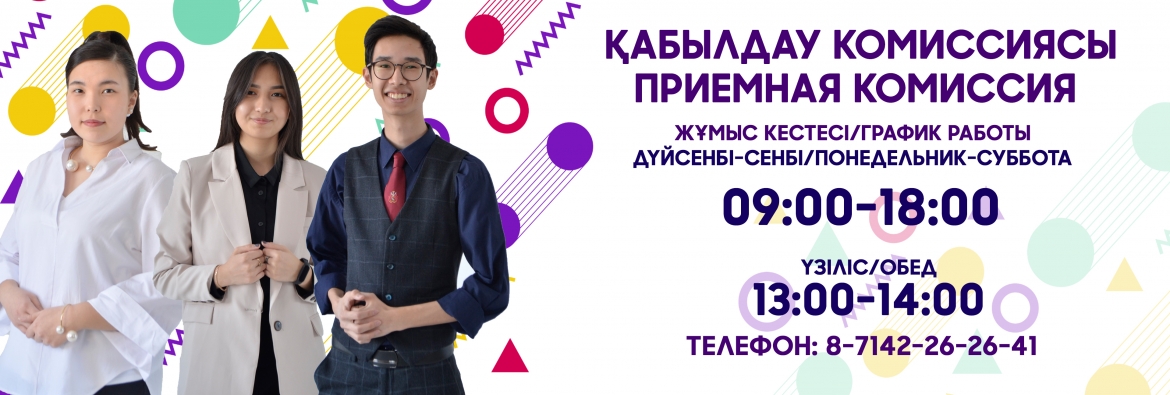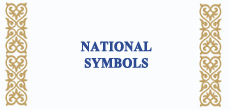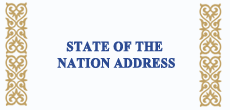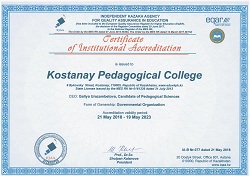Dear students, have you already heard that children have rights? Children's rights are your own rights. You all have rights, no matter where you live, how old you are, how you look and what religion you confess. It is important that you know your rights! After all, only then will you be able to notice if in everyday life someone violates these rights.
But it is also important for adults to know about the rights of the child. In the near future, you will all become educators, and you must always keep the rights of the child in mind when making decisions that affect the lives of children and adolescents.
What is the Convention on the Rights of the Child? Children have rights! Children, for example, have the right to live in peace, be well provided for, go to school, and have privacy. But these rights are not always respected.
To ensure that in the future the rights of all children around the world are respected as much as possible, politicians and experts from almost all states of the world have signed the Treaty on the Rights of the Child. This happened on November 20, 1989. This Treaty is called the "Convention on the Rights of the Child".
How did the Convention on the Rights of the Child come about? 1979 was declared the “Year of the Child” all over the world. Therefore, the government of the state of Poland has proposed this year to develop a Convention on the Rights of the Child at the United Nations.
The United Nations (UN) is an organization that includes almost all countries in the world. Its activities are aimed at protecting peace and fighting poverty. Many very different states are represented in the United Nations. And they have very different ideas about which rights are especially important for children. These countries came to a consensus on only one issue: children should receive special basic rights. In total, negotiations on the rights of the child have been going on at the United Nations for ten years! In 1989, the Treaty was finally ready.
Where does the Convention on the Rights of the Child apply? In order for the Convention on the Rights of the Child to truly enter into force in any state, it must first be approved by the people who are responsible in that state. To date, 193 states have approved the Convention on the Rights of the Child. That is, these are all the countries of the world, with the exception of Somalia, South Sudan and the United States of America.
The Convention on the Rights of the Child applies to nearly two billion girls and boys! This is the number of children living in the 193 states that have signed the Convention.
Who is covered by the Convention on the Rights of the Child? At what age is a person considered a child in order to receive the protection of the Convention on the Rights of the Child? This is defined in the Convention on the Rights of the Child (Article 1). It states that generally all people under the age of 18 are considered children. However, there are exceptions if a country determines that people are considered adults in it already earlier. Each state determines at what age its citizens are children.
Although almost all states in the world have signed the Convention on the Rights of the Child (note: Kazakhstan ratified the UN Convention on the Rights of the Child in 1994), no one can force them to comply with it. But, it is good that such a Convention exists: the Convention on the Rights of the Child stands for the observance of children's rights. And the more children and adults know about this, the more chances that more and more states will comply with this Convention. And the better it will be for children on our planet.
10 most important child rights
1. Equality: no child should be disadvantaged.
2. Health: Children should live healthy lives, be protected and not tolerate hardship.
3. Education: Children should have the opportunity to learn and receive an education that suits their needs and abilities.
4. Information, Freedom of Expression and Participation: Children should have the right to receive all the information they need to express their opinion. Children should have the right to participate in all matters that affect them and to say what they think.
5. Free time, play and rest: Children should have free time and be able to play and rest.
6. Parental Care: Every child has the right to grow up with their parents, even if they do not live together. If this is not possible, the child should be cared for, for example, by adoptive parents.
7. Parenting without violence: Children have the right to grow up and be raised without violence.
8. Protection during war and protection of refugees: Children should enjoy special protection during war and as refugees.
9. Protection from Economic and Sexual Exploitation: Children have the right to be protected from violence, bullying and sexual and economic exploitation.
10. Special protection and support for children with disabilities: Children with disabilities should receive special care and support so that they can actively participate in life.
The further fate of the planet is in the hands of children. Every adult must understand this and stand up for this future. Only then will each child be able to feel comfortable in the modern world, not to adapt in it, but to live with dignity!
Executor: Popova G.A.
Tel .: 87054033294













































 Отчет директора КГКП «Костанайский педагогический колледж» за 2021-2022 учебный год
Отчет директора КГКП «Костанайский педагогический колледж» за 2021-2022 учебный год Отчет директора КГКП «Костанайский педагогический колледж» Управления образования акимата Костанайской области
Отчет директора КГКП «Костанайский педагогический колледж» Управления образования акимата Костанайской области Я выбираю Костанайский педагогический колледж!
Я выбираю Костанайский педагогический колледж! Мен Қостанай педагогикалық колледжін таңдаймын!
Мен Қостанай педагогикалық колледжін таңдаймын! "ПАМЯТЬ В СЕРДЦАХ ХРАНИМ" ПРАЗДНИЧНЫЙ КОНЦЕРТ| ДЕНЬ ПОБЕДЫ!
"ПАМЯТЬ В СЕРДЦАХ ХРАНИМ" ПРАЗДНИЧНЫЙ КОНЦЕРТ| ДЕНЬ ПОБЕДЫ! Помним и гордимся
Помним и гордимся Виртуальная выставка к 75 летию Победы в Великой Отечественной войне
Виртуальная выставка к 75 летию Победы в Великой Отечественной войне Мен қашықтан оқытамын
Мен қашықтан оқытамын Я обучаю дистанционно
Я обучаю дистанционно "Вместе мы - команда" дистанционное обучение в колледже
"Вместе мы - команда" дистанционное обучение в колледже Встреча российской молодежи на Казахстанско-российский форум молодежи
Встреча российской молодежи на Казахстанско-российский форум молодежи Чемпионат по методике WorldSkills стартовал в Костанайском педагогическом колледже
Чемпионат по методике WorldSkills стартовал в Костанайском педагогическом колледже Единый подход к информатизации ТиПО
Единый подход к информатизации ТиПО Жастар лебізі
Жастар лебізі Автору проекта "Самопознание" посвящается...
Автору проекта "Самопознание" посвящается... Казакстанда жастар жылы!
Казакстанда жастар жылы! С ЮБИЛЕЕМ РОДНОЙ КОЛЛЕДЖ СПЕЦИАЛЬНЫЙ РЕПОРТАЖ
С ЮБИЛЕЕМ РОДНОЙ КОЛЛЕДЖ СПЕЦИАЛЬНЫЙ РЕПОРТАЖ Қоғамдық бейнебаян "Мен сені сүйемін..."
Қоғамдық бейнебаян "Мен сені сүйемін..." Отчет директора по итогам 2017-2018 учебного года
Отчет директора по итогам 2017-2018 учебного года Сәлем! Абитуриент!
Сәлем! Абитуриент! "Астана в моем сердце..."
"Астана в моем сердце..." Стихотворение "Астана в моем сердце..."
Стихотворение "Астана в моем сердце..." "Инструктивно-лагерные сборы-2018". 3 отряд
"Инструктивно-лагерные сборы-2018". 3 отряд "Инструктивно-лагерные сборы-2018". Отряд 2
"Инструктивно-лагерные сборы-2018". Отряд 2 LIFE репортаж КВН лига ПРОФСОЮЗОВ 1/4
LIFE репортаж КВН лига ПРОФСОЮЗОВ 1/4 Кружковая работа в колледже
Кружковая работа в колледже Костанайский педагогический колледж для абитуриента
Костанайский педагогический колледж для абитуриента Последний звонок, долгожданный звонок…
Последний звонок, долгожданный звонок… «Солдатам Победного мая», Жакаева Кунсулу и хор КПК - "Верните Память"
«Солдатам Победного мая», Жакаева Кунсулу и хор КПК - "Верните Память" «Солдатам Победного мая», ансамбль "Новое поколение"- Тёмная ночь
«Солдатам Победного мая», ансамбль "Новое поколение"- Тёмная ночь Конкурс «Колледжвидение-2018»
Конкурс «Колледжвидение-2018» Видеолекция на тему: "Использование ИКТ в учебном процессе ТиПО в контексте новых подходов в обучении и преподавании"
Видеолекция на тему: "Использование ИКТ в учебном процессе ТиПО в контексте новых подходов в обучении и преподавании"